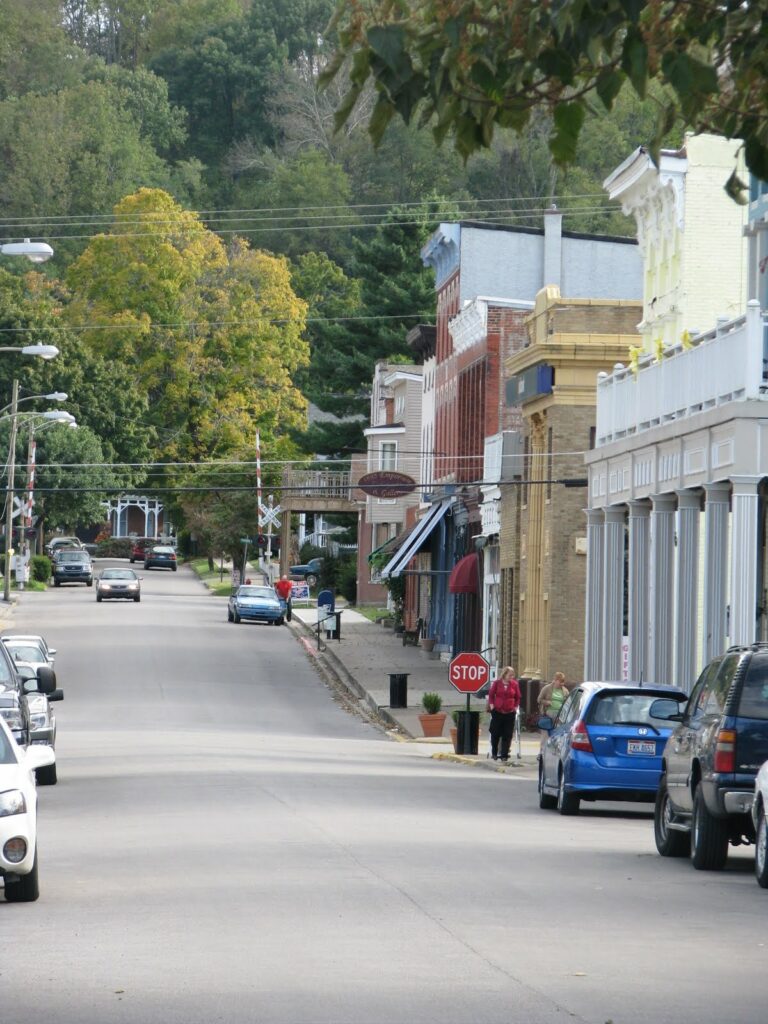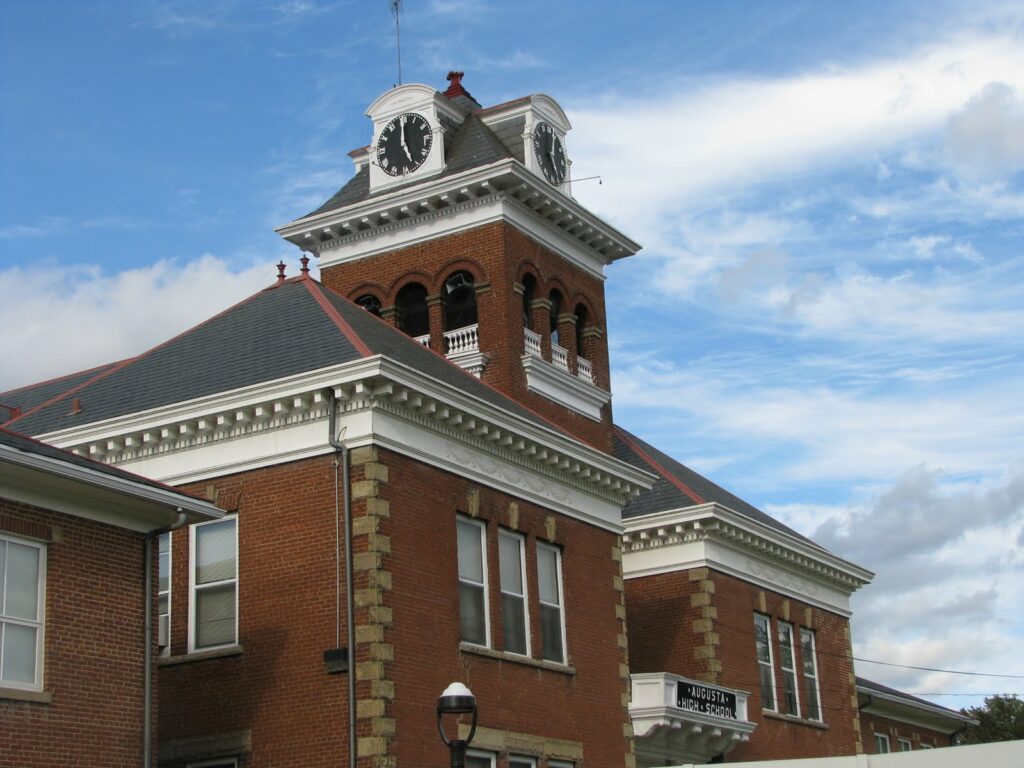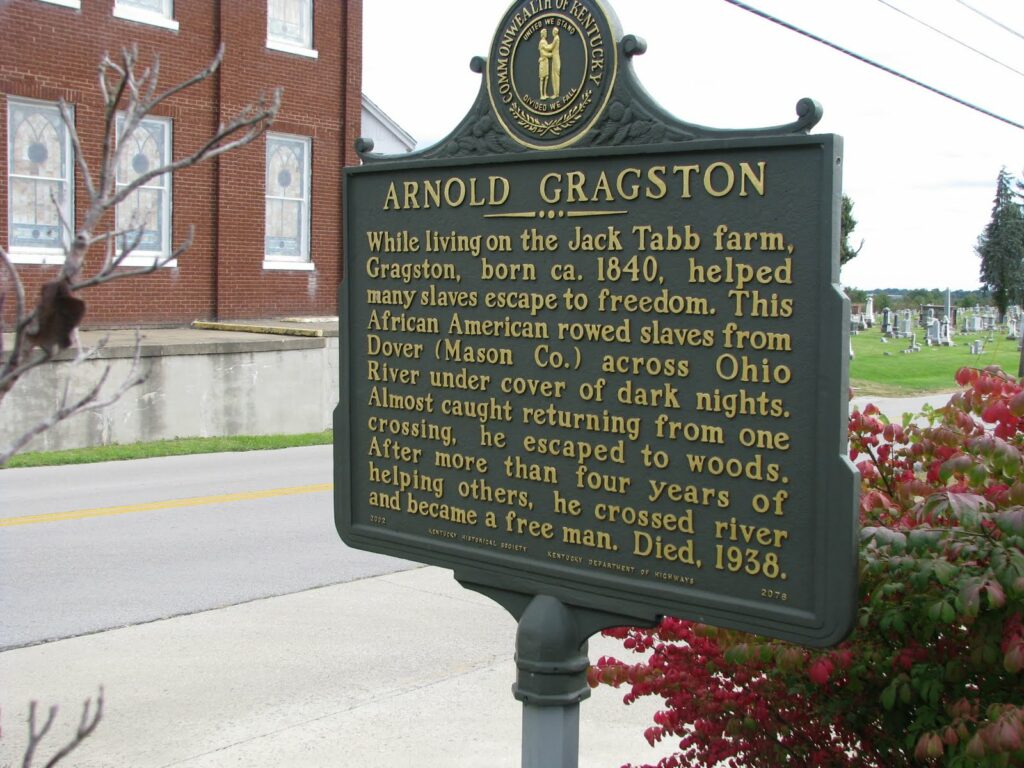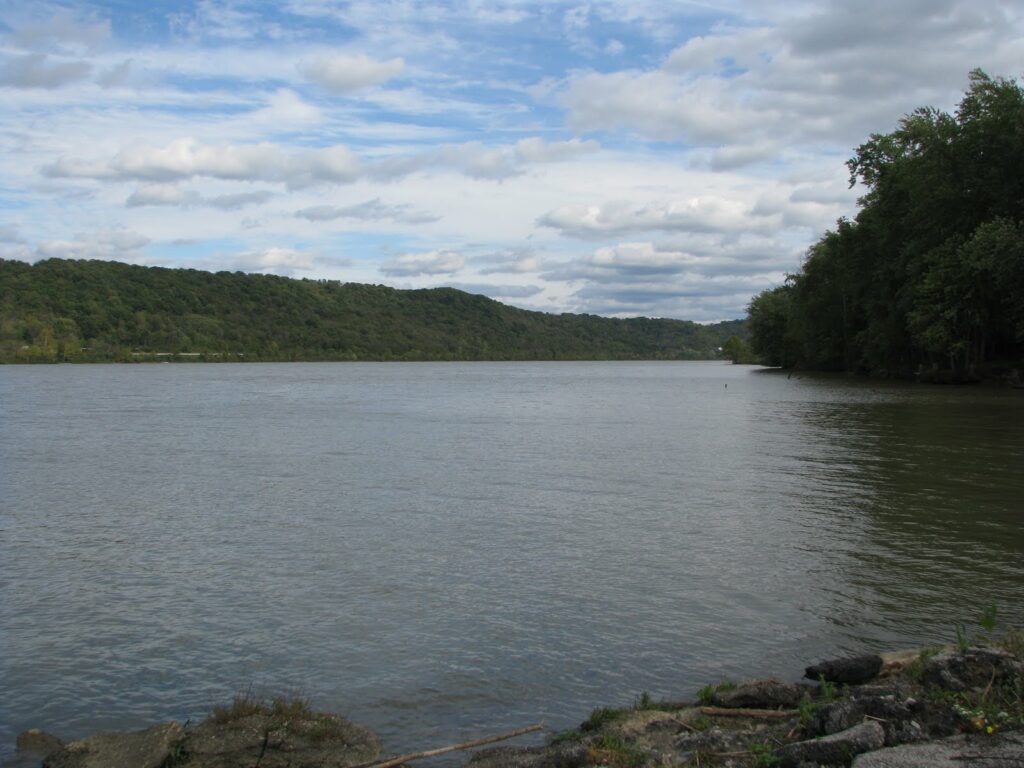 Kentucky history laureate, the late Dr. Thomas Clark listed Augusta as one of Kentucky’s Eleven Treasures that Helped Shape the Commonwealth. Augusta is a fine town on the Ohio River of over 2,000 people. Because I arrived in Augusta in late afternoon, I plan to return so that I might spend more time in this community.
Kentucky history laureate, the late Dr. Thomas Clark listed Augusta as one of Kentucky’s Eleven Treasures that Helped Shape the Commonwealth. Augusta is a fine town on the Ohio River of over 2,000 people. Because I arrived in Augusta in late afternoon, I plan to return so that I might spend more time in this community.
Augusta was the county seat of Bracken County from the creation of the county until the seat was moved to the more centrally located Brooksville in 1839. While this may seem unusual today, Bracken County was once quite large geographically. It contained parts of what is now Bracken, Robertson, Harrison (eastern), Bourbon, Nicholas (most) and Mason (southern) counties.
The town is in terrific condition (especially when compared to neighboring Dover). On a Sunday afternoon, tourists were in great number and shops were open. Though no longer the county seat, Augusta is the center of Bracken County life.
Augusta has much to owe its most famous residents: the Clooneys. Rosemary Clooney owned a summer home in Augusta, while her brother (journalist, newsanchor and gameshow host Nick) continues to live in Augusta. Of course, it is Nick’s son (actor George) who is today’s most well-known Clooney; George attended and graduated from the Augusta High School (pictured below).
 Augusta is also the home of Miss America 2000, Heather Renee French (Henry).
Augusta is also the home of Miss America 2000, Heather Renee French (Henry).


